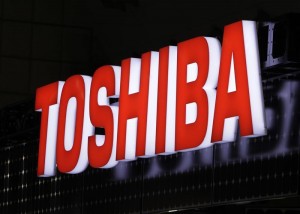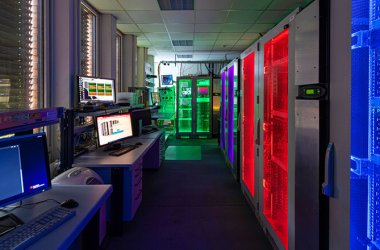 Toshiba said Tuesday it is developing a line of products for storing large amounts of data, based on its flash memory chips.
Toshiba said Tuesday it is developing a line of products for storing large amounts of data, based on its flash memory chips.
The company is working on a three-tier strategy to spur in-house demand for NAND flash memory, of which it is among the world’s largest manufacturers. It will offer memory chips for use in storage hardware, data servers that combine hard disks, solid-state drives and flash and software services for analyzing and handling large amounts of data.
“Up until now we’ve sold mostly to outside companies, but we want to strengthen our own offerings,” said Masaki Momodomi, a senior engineer at Toshiba.
NAND flash makers like Toshiba are in a constant race to roll out chips with finer circuits, which offer cheaper storage and better efficiency, but they are closing in on the physical limits possible with current technology. The Japanese company has until now focused on out-shrinking rivals like Samsung, and last year was the first to launch solid state drives with 19-nanometer memory.
Momodomi said Toshiba will offer chips at smaller than 19 nms, but remaining in the teens, over the next two years. The company is also working on three-dimensional storage, a possible successor to current NAND flash technology that stacks memory in layers for greater density, and says it will have prototype samples ready by 2013.
Toshiba announced the effort as part of its new research and development strategy. At its headquarters in central Tokyo, the firm showed several upcoming products, including quantum encryption and home lighting based on organic light-emitting diodes.
The company said its strategy going forward is also focused on adding headcount outside of Japan.
Toshiba said that 70% of its new research personnel through the fiscal year ending in March 2015 will be hired outside of Japan. The bulk of the new hires will come in China, India and Vietnam, where research projects will focus on technologies and products meant for the countries where they are developed.
“We have to keep a firm grasp on the global trends,” said Akira Sudo, an R&D executive.





